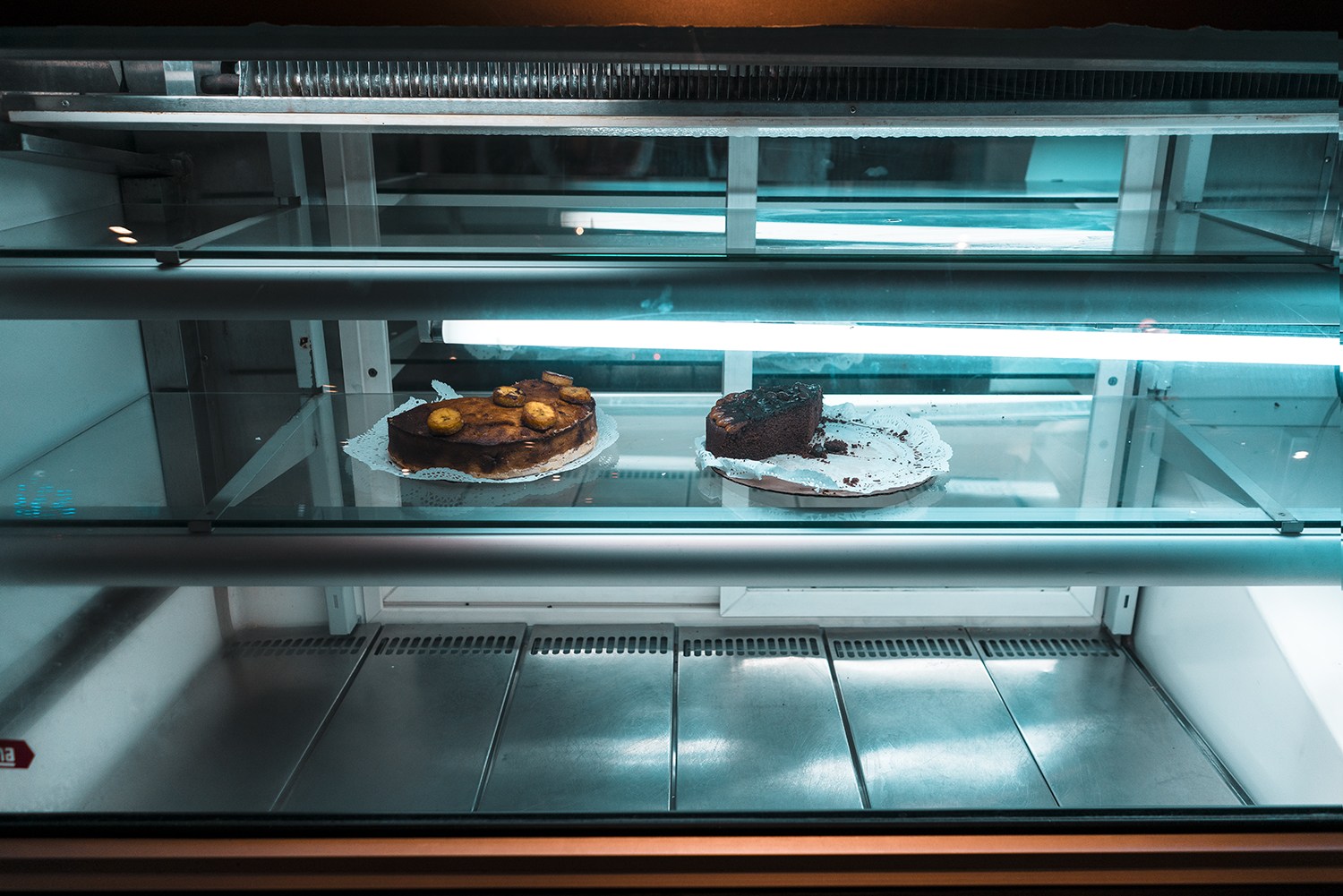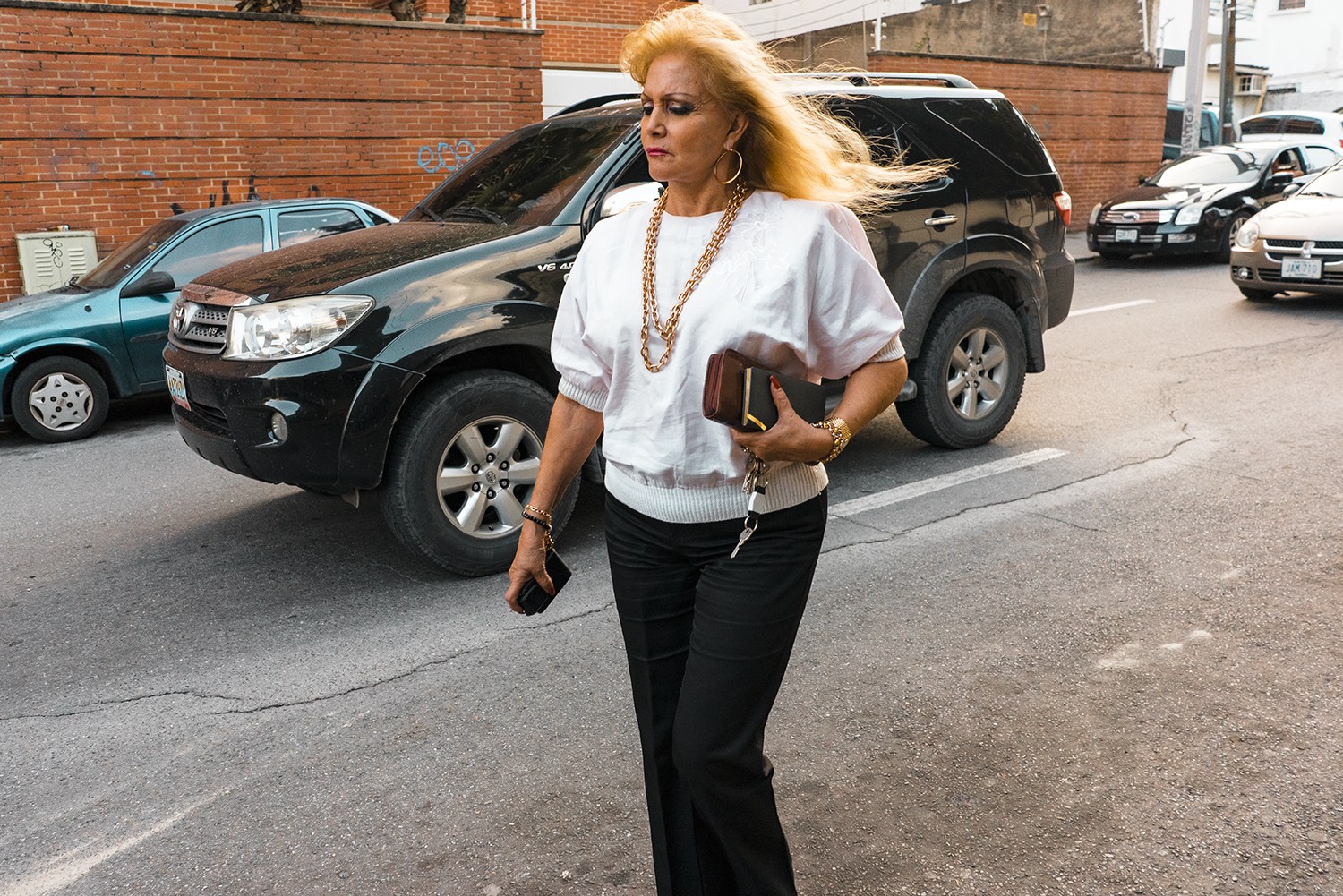Iggy Smalls is a Norwegian fine-art and documentary photographer currently based in Barcelona. In 2013, while vacationing in Caracas, it happened to be the week former President Chavez died from cancer, a historical moment for the country and the world. As a photography student, she couldn’t miss the opportunity to document the trip with the backdrop of such event…
Her interest for the situation became stronger when she travelled back in 2014 and saw the before and aftermath of the student protests sparked due to the country’s high levels of violence, inflation, and chronic shortages of basic goods. She wanted to document such events but she was told that there was more to it, more challenges that deserved to be addressed in addition to the increasing violence and political tension. It is how her series about Venezuela started.
What story did you want to tell with the series?
The idea behind (Barely) Bread & Circus is to portray a day in Caracas in today’s situation. When I returned to the States after my first trip the photos and articles in mainstream and social media of Venezuela that I saw circulating were mainly of the violence and homicides and later the 2014 student protests. However going back, being there, I was told that there was more to it, more challenges that deserved to be addressed in addition to the increasing violence and political tension.
Current President of Venezuela, Nicolas Maduro, a highly disputed man did nothing to prevent the increase of inflation or product shortages left over from Chavez. Neither did he stop the murder rate from growing, despite expanding the army and police force. Prices started inflating, first slowly and then now drastically; increasing contrast between the rich and the poor – but the international media kept their focus on the student protests. Big news sources like Reuters did not cover any of these things until long after it had already started. So I tried to fill a gap – trying to best convey what everyone I met in Caracas would talk about – not so much the crime, not so much the protests – but everyday chores like not finding harina pan or bread, deterioration of infrastructure, standing in hourlong lines and how things used to be different.
Since we know the situation in Venezuela is incredibly difficult in every sense, how did you feel taking the pictures, exposing yourself? How did the people react?
It is difficult and complicated – not just as a photographer but you know, being myself. Being safe is everyones top priority there, so I “missed” some moments simply because it felt dangerous to push it with a camera. Many times I opted to shoot through the black tinted windows in cars or from behind a friend’s back. It’s weird though because I like to talk to people when I photograph them, ask permission and get to know the country I visit through them. So many times I was left thinking about my own morals – should I really take this picture, or should this be shown to anyone? I just hope the series will make a viewer who is unfamiliar with Venezuelas situation, interested enough to do some research on the subject. In a very general sense it concerns everyone because it shows how important it is to vote and sometimes be critical to our own governments. Most of the friends I made over the years recently joined the Bolivarian diaspora of 1.6 million Venezuelans living outside their home country and the conditions in Venezuela seems to only get worse. However I hope to go back soon and visit the ones who are still left and see how it develops. My last trip there was from 20/12/2016 to 10/01/2017.
Check out the whole series on her website.













